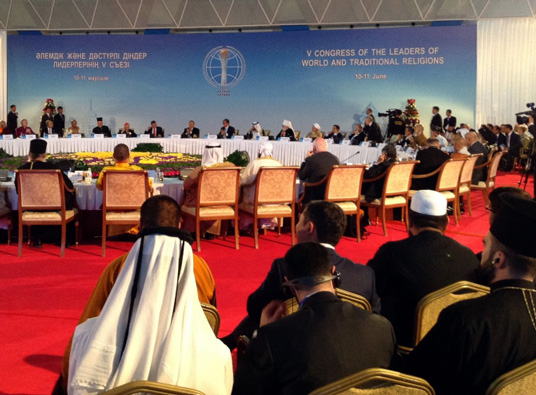Religion, as we are all aware, reaches to the roots of motivation. When it has been faithful to the spirit and example of the transcendent Figures who gave the world its great belief systems, it has awakened in whole populations capacities to love, to forgive, to create, to dare greatly, to overcome prejudice, to sacrifice for the common good and to discipline the impulses of animal instinct. Unquestionably, the seminal force in the civilizing of human nature has been the influence of the succession of these Manifestations of the Divine that extends back to the dawn of recorded history.
This same force, that operated with such effect in ages past, remains an inextinguishable feature of human consciousness. Against all odds, and with little in the way of meaningful encouragement, it continues to sustain the struggle for survival of uncounted millions, and to raise up in all lands heroes and saints whose lives are the most persuasive vindication of the principles contained in the scriptures of their respective faiths. As the course of civilization demonstrates, religion is also capable of profoundly influencing the structure of social relationships. Indeed, it would be difficult to think of any fundamental advance in civilization that did not derive its moral thrust from this perennial source. – The Universal House of Justice, 2002 April, To the World’s Religious Leaders, p. 2.
For growing populations of youth across the planet to become constructive participants in the life of society and contributors to social progress, our cultures will need to make a fundamental shift in thinking about the role of religion.

5th Congress of World and Traditional Religions
This was one of the main points made by the Baha’i International Community’s delegation to the 5th World Congress of the Leaders of World and Traditional Religions, held in Kazakhstan on 10-11 June.
This year’s Congress, chaired by the President of Kazakhstan, Nursultan Nazarbayev, hosted 80 delegates representing some ten religions and more than forty countries. Ban Ki Moon, Secretary-General of the United Nations, and King Abdullah II of Jordan both attended, among many others.
Joshua Lincoln, Secretary-General of the Baha’i International Community, Serik Tokbolat from the Baha’i International Community Office at the United Nations, and Lyazzat Yangaliyeva, the Director of the Office of Public Information for the Baha’is of Kazakhstan all represented the Baha’i Faith at the conference.
The Congress focused on dialogue among religions, and between religions and leaders of thought and government. Reflecting on the Congress, Ms. Yangaliyeva commented that the striking diversity of faiths present brought into sharp focus the challenge and necessity of cooperation among them if humanity is to build a more peaceful world.
On a panel discussion titled “The Influence of Religion on Youth: Education, Science, Culture, and Mass Media,” Mr. Lincoln spoke about positive social change, young people, and the role of religion.
“Religious communities are communities of practice where spiritual teachings are translated into social reality,” he said. “Within them, a process of capacity building that enables young people to participate in the transformation of society, and protects and nurtures them, can be set in motion.”
In his comments, Mr. Lincoln also spoke about the contrasting images that have come to define youth in popular thought. Although vulnerable to radicalization on one extreme and apathy and inertia on the other, his remarks highlighted the promise that lies in the young generations.
“Young people can see the contradictions in this world,” said Mr. Lincoln. “We know that youth have an acute sense of justice, a yearning for meaning and purpose, a desire to serve and contribute meaningfully, a thirst for knowledge and an innate attraction to what is good and beautiful.
“These characteristics are intrinsic, though they may remain latent and dormant in whole populations when the education and moral empowerment of youth is neglected.”
For religion to play a positive role, its leadership must, Mr. Lincoln pointed out, “scrutinize the orientation that has become deeply embedded in so many communities toward the ’other’, and challenge the pervasive and harmful claims of privileged access to truth that have fueled some of the most bitter conflicts in the world.”
Religious extremism and religious co-existence were some of the other issues discussed at the Congress.
Convened every three years, the Congress is an initiative of the Republic of Kazakhstan. Its Secretariat is headed by the President of the Senate, Kassym-Jomart Tokayev. The next Congress will be held in 2018.
















Comments
Sign in or create an account
Continue with Googleor